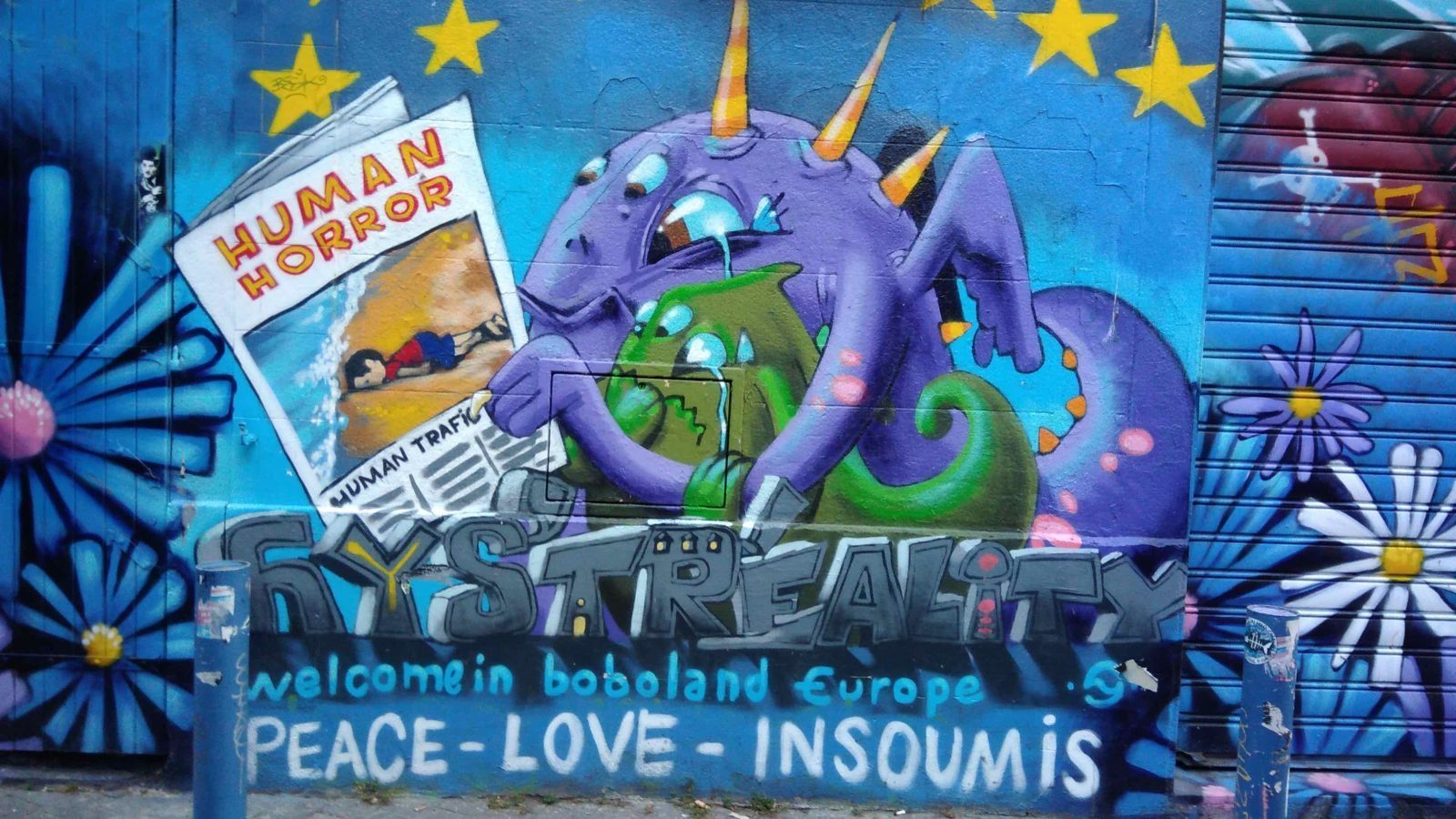Alima El Bajnouni is a jurist and manager at “Un centre ville pour tous” (An urban center for all), an association in Marseille devoted to the right for everybody to live in the city center with decent housing conditions, regardless of social condition, and for collective action toward government authorities.
Alima is a member of Commonspolis’ Socio-Scientific Council.
Commonspolis: Can you describe the events that marked the 5th of November?
November 5th was a terrible day in Marseille, a day of drama that will remain in the memory of the people of Marseille and which in a way has marked a change of perspective.
Two buildings in the rue d’Aubagne, located in the popular and central district of Noailles collapsed, causing the death of 8 people in one of them!
The first building, owned by the town hall, was closed because it was deemed unfit for habitation. The second one, although highly unhealthy, was inhabited, it had been the object of several peril decrees for major dysfunctions and important works should have taken place.
Before lifting a decree, the work was supposed to have been done. However, the city hall does not systematically carry out a verification visit and is satisfied with an invoice to show that the work has been done. This is absurd.
present, the city hall has dislodged more than 1,500 people, many of them in anticipation, that is to say, without any order of insalubrity or danger. In Noailles, some buildings have been “deconstructed”, notably 67 and 69 rue d’Aubagne, in order, according to the city hall, to destroy the buildings deemed too dangerous and thus avoid a chateau de carte effect in the district.
What is behind this drama?
This drama shook Marseille because it is emblematic of the city council’s treatment of housing and substandard housing in particular. It is catastrophic for a city that wants to be the second largest city in France.
The people of Marseille have therefore started to mobilise on a massive scale, demonstrating their general general exasperation. Many people who until then considered their apartment indecent and had no real return from their landlord have now become aware of the extreme dangerousness of the situation of their habitat. A hastag has even been launched: #BalanceYourSlum.
On the other hand, the housing policy in Marseille is segregative : there is not enough social housing for low incomes in the city centre. There is a willingness on the part of the city council to move upmarket in the city centre to attract outsiders or people capable of investing in real estate. Proof of this is the Plaine project, which provides for a vast redevelopment programme carried out without consulting the population and which costs 20 million euros plus 400,000 euros to build a wall to prevent demonstrators from claiming their opposition to the project.
Finally, the inter-communal urban development plan due to be adopted shortly still does not respect the obligation to provide social housing in the city centre.
Faced with this reality, we loudly and clearly proclaim 5 demands:
- That the city hall assumes its responsibilities in the face of this tragedy and the reality of housing in Marseille.
- That the City hall put in place appropriate and sufficient means to absorb the unworthy habitat.
- Quickly relocate the displaced persons to decent apartments, according to their needs. On this subject, our association asks for the requisition of empty buildings such as those of the rue de la république where we have already mobilized against the eviction of inhabitants for the sole benefit of real estate operations with a vocation of financial gain.
- To set up a non-segregative housing policy
- In a more general way, that the overall policy of the city hall be more attentive to the real needs of its inhabitants.
Do you think that these mobilizations could foster a movement capable of changing public policies and even lead to a municipalist project?
The demands described above can be found in a manifesto, “the manifesto for a living and popular Marseille”, signed by many organizations mobilized since November. It also focuses on the need to build nurseries, schools and social centres, as well as the prohibition of all real estate speculation where the 8 people have been killed.
It is the first time that I have observed a real dynamic of convergence between the different organizations mobilized. Many people in the streets are showing their willingness to take over the municipal management themselves. Yet, there is not a common strategy around the issue of municipal management but there is a real will of convergence.
Before, I did not feel in Marseille that there was such a desire to take charge of the municipality. I discovered the municipalist platforms on my own and I was confident of their potential but I did not feel that Marseille was mature enough for that. These events mark a milestone and the manifesto is in a way the starting point of a project for the city that can be thought through and managed by its inhabitants. If I think that the objectives of the manifesto can succeed in bringing together people and organizations capable of presenting a municipalist program for the 2020 elections.
What could the international municipalist experience bring?
The experience of municipalist cities in other countries would be valuable. Indeed, in Marseille, the struggle for power condition politics a lot because political factions are particularly powerful. We would need methods to overcome these power objectives that could slow down a municipalist process, as well as methods to achieve a focus on the common goal by taking into account our differences and learning to overcome disagreements.
MANIFESTE POUR UN MARSEILLE VIVANT ET POPULAIRE






